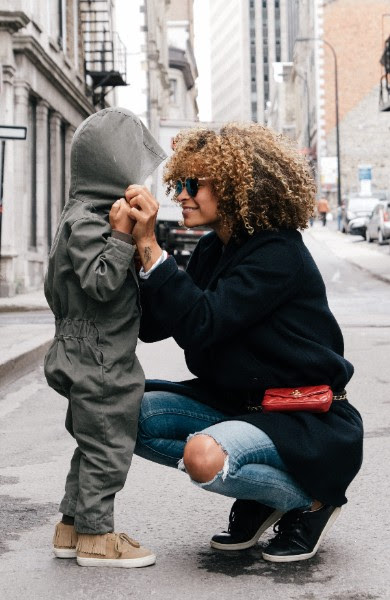
Every day, all day long, we're modeling how to manage feelings, and therefore behavior. This is the basis of emotional intelligence (EQ), which will determine their quality of life much more fundamentally than their IQ.
When adults scream at their partners, procrastinate at work, spend money they don't have or use substances to ease their pain, those are moments of emotional dysregulation, or not being able to self-regulate. In fact, much of the drama and unhappiness in our lives comes from our own challenges in regulating our emotions.
Wouldn't it be an amazing gift to your child to help him or her develop the ability to self-regulate, even when live sends them rough weather? (Because every life has some rain.)
Kids learn how to manage "big feelings" when we model self-regulation. Specifically, when we:
- Are able to stay calm and kind in the face of the child's upset.
- Accept the child's feelings even when we need to limit their actions.
- Respond to the child's anger with compassion, so they can show us the tears and fears behind their anger.
Research shows that children's brains learn to self-soothe through this process. Eventually, they learn to stabilize themselves even in the face of stressful situations and emotions.
Experts call this "emotion-coaching." But you could also think of it as the unconditional love that every child needs.
- When we see past the bad behavior to the overwhelmed, frightened child underneath.
- When we listen, difficult feelings and all, instead of sending them away until they can "act right."
- When we respond to their anger or neediness with "How can I help?" instead of letting ourselves get triggered.
- When we help them with their emotions first, and then wait until they're calm and can actually learn before we talk about appropriate behavior.
When parents regulate their own emotions and accept their child's emotions, the child learns to manage his or her feelings and behavior earlier than other kids. They're closer to their parents through the teen years and beyond. They're more skilled at calming themselves, and handle stress better, both as kids and as adults.
Unconditional love creates higher EQ, or emotional intelligence quotient. That means a child who can manage her emotions, and therefore her behavior. A child who grows into a person who walks in love, follows his own inner compass, and acts with powerful presence. A person who makes the world a better place, just by being himself or herself.
A challenging and exciting thought for us as parents? Indeed. It's the most important thing you're teaching, every day.
"Whenever I held my newborn baby in my arms, I used to think that what I said and did to him could have an influence not only on him but on all whom he met, not only for a day or a month or a year, but for all eternity - a very challenging and exciting thought for a mother." -- Rose Kennedy
***





